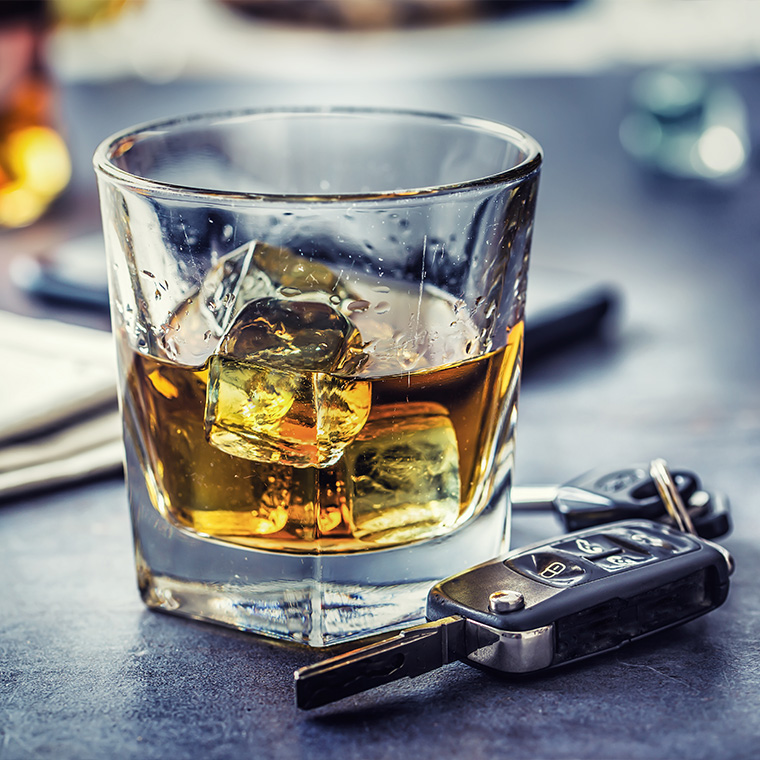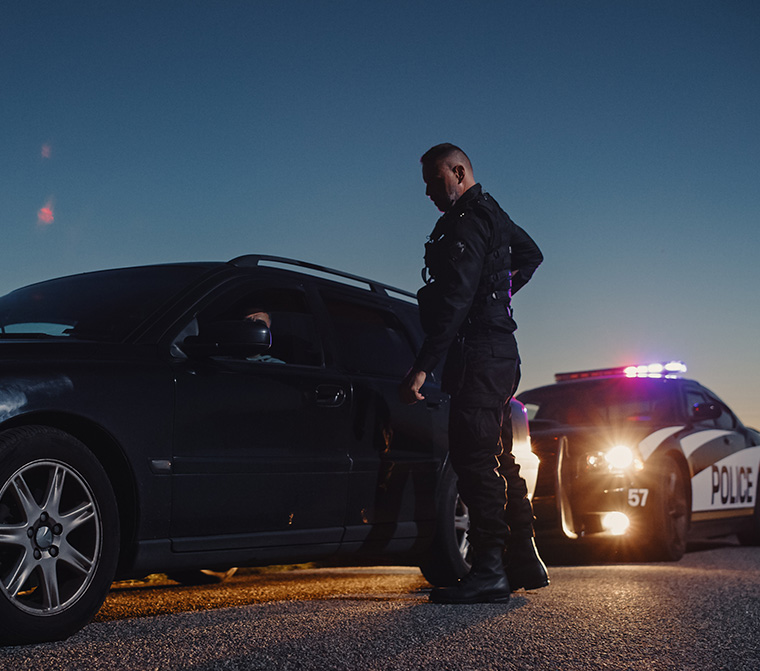
Phoenix Aggravated DUI Lawyer
A DUI charge is serious enough in its own right. When circumstances turn that into an aggravated DUI charge, you or your loved one face even more serious legal consequences. It’s important to have the right lawyer in your corner to fight for your rights and protect your future.
I’m Attorney Lawrence Koplow and I have over 20 years of experience. That includes time as a prosecutor. I understand the system, and I understands it from both sides. I know how to conduct my own independent investigation of a case, seeking the weaknesses in the evidence that may be able to vindicate my clients.
Based in Phoenix, The Koplow Law Firm serves people throughout the Scottsdale area. Call (602) 560-7837 today. I’m available 24/7 and offer free consultations.
Understanding Aggravated DUI
Aggravated DUI in Arizona refers to cases that are elevated to felony status due to specific aggravating factors, as outlined in Arizona law (A.R.S. § 28-1383). These circumstances distinguish aggravated DUIs from misdemeanor DUIs, enhancing the penalties involved.
Here are some of the scenarios that can lead to aggravated DUI charges:
- A record with prior DUI convictions
- Driving with a suspended, revoked, or canceled license
- A third DUI offense within 84 months
- DUI with a passage under the age of 15
- Ignition interlock violations
- Wrong-way driving while under the influence
Arizona law carefully defines how prior offenses are calculated for aggravated DUI charges within the 84-month period. The dates of the original violations, not the convictions, are used to determine eligibility for enhanced charges. Time spent in prison or on absconder status does not count toward this timeframe.
Additionally, aggravated DUI charges cannot be based on multiple violations arising from the same set of acts. For example, if a single DUI incident leads to several related charges, only one counts toward the aggravating factors.
Finding the Way Forward
Making a mistake doesn’t define a person. While aggravated DUI charges can carry heavy consequences, they don’t erase the good in someone’s character or the potential for a positive future. It’s true that driving under the influence is dangerous, but it’s also true that everyone deserves the chance to recover from an error in judgment.
Furthermore, it’s also true that being accused of a crime is not the same as being guilty. Police officers work hard to protect the public, but they’re not infallible. Procedural missteps, testing inaccuracies, or violating rights during a traffic stop can happen, and when they do, an individual’s case deserves careful examination.
The strong legal defense I aim to provide is, first and foremost, about protecting the record, rights, and freedom of you or your loved one. It’s also about fairness for society as a whole. Our system of justice doesn’t work well unless both sides get strong, qualified advocacy. The District Attorney has plenty of resources at their disposal. You deserve an aggravated DUI lawyer who can help you level the playing field.
Experience Matters
Arizona’s DUI laws are among the most complex in the nation. From the Arizona Rules of Criminal Procedure and Rules of Evidence to the intricate regulations of the Arizona Department of Motor Vehicles (DMV), your attorney must have an in-depth understanding of these rules to serve you effectively.
I’m an experienced and accomplished lawyer, but even more than that, I’m the lawyer other attorneys trust in cases like these. I’ve given presentations and conducted training seminars on how defense lawyers should handle DUI cases.
I know the procedure necessary to analyze blood samples, find issues with testing equipment, secure expert witnesses, and address license suspensions. My goal is to maximize your chances for a favorable outcome and to protect your future against an aggravated DUI charge.
Call my Phoenix office at (602) 560-7837 or contact me online today. I can meet either in person or virtually, based on your preference.


Hear From the People We’ve Helped
Testimonials and Reviews
At The Koplow Law Firm, your satisfaction is our priority! See for yourself what our clients have to say about working with us.
-
"Great trial attorney."
Lawrence is tenacious, relentless, and extremely passionate about his clients and their cases. He leaves no stone unturned in his investigations, and his cross examinations are grueling. His knowledge of the science of DUI's and the testing procedures is unsurpassed. Great trial attorney.
- Jesse S. -
"Unquestionably one of the top DUI/ criminal defense attorneys in Arizona."As a practicing attorney in DUI and criminal defense, and as a former prosecutor who went against Lawrence on several cases, I can attest that the State knows they will have their hands full when Lawrence is on the case.- Ryan M.
-
"You cannot go wrong with Lawrence."
Great attorney! Lawrence thinks outside the box and goes above and beyond for his clients and the legal community at large. If you are looking for aggressive representation, you cannot go wrong with Lawrence.
- Charity C. -
"No other lawyer knows the science of DUI like Lawrence does."Lawrence is the best lawyer I have ever met. If your career is on the line then he is the guy. No other lawyer knows the science of DUI like Lawrence does. I will be forever grateful!- Greg S.
-
"It was miracle!"
It was miracle!... A lot of people don't really understand the benefit of having an attorney who used to be a prosecutor. They know all the little tricks and scare tactics the state has as opposed to just hiring an attorney who is a little fish in a big pond.
- Joe C. -
"One of the best."Lawrence Koplow is one of the best DUI and vehicular defense attorneys in the state of Arizona. Anyone would be extremely fortunate to have him as their advocate.- Jack L.
-
"You cannot go wrong with Lawrence."Lawrence thinks outside the box and goes above and beyond for his clients and the legal community at large. If you are looking for aggressive representation, you cannot go wrong with Lawrence.- Charity C.
-
"Nobody knows the court and laws better than him."Lawrence represents very high-profile clients who greatly depend on a good outcome, and this guy will deliver. This is a prosecutors' worse nightmare, and it should be that way if you need an attorney.- David E.
DUI Library
The best DUI defense stuff that only a few know and none want to share. A one of a kind annotated resource for lawyers, people accused, or anyone who wants to see what’s going on in our justice system with DUI cases… and how to fix it.
-
Scottsdale DUI Definitive GuideScottsdale DUI Definitive Guide
-
The Definitive Guide to Defeating an Arizona DUIThe Definitive Guide to Defeating an Arizona DUI
-
Field Sobriety Tests in Arizona DUI CasesField Sobriety Tests in Arizona DUI Cases
-
Traffic Stops in Arizona DUI CasesTraffic Stops in Arizona DUI Cases
-
Warrantless Blood Draws in Arizona DUI CasesWarrantless Blood Draws in Arizona DUI Cases
-
Right to Counsel in Arizona DUI CasesRight to Counsel in Arizona DUI Cases
-
Failure to Preserve EvidenceFailure to Preserve Evidence






